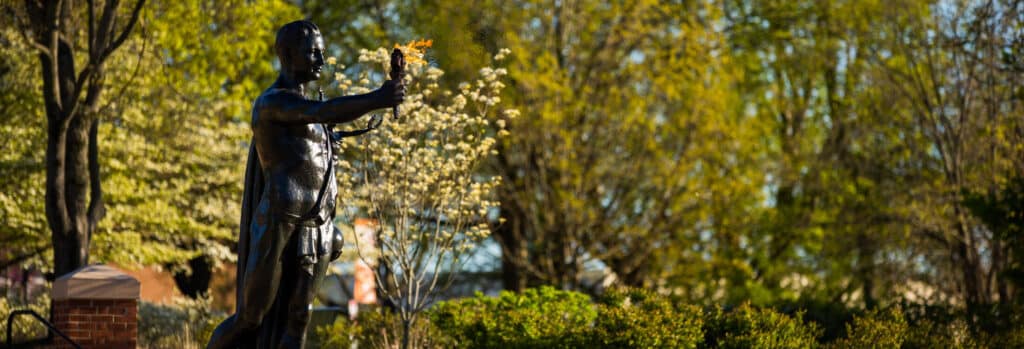The promotion and support of a research culture that prizes integrity is a responsibility shared by all members of UT’s research community. All UT faculty and staff engaged in or supporting research, scholarship, or creative activities must be deeply committed to discouraging and preventing unethical conduct, making responsible choices when faced with ethical dilemmas in research, promoting accepted practices for conducting research, and equipping ourselves, as well as our students and postdoctoral trainees, with the knowledge necessary to comply with regulations, policies, statutes, and guidelines governing the responsible conduct of research (RCR).
To support RCR, UT implements programs and provides training to protect human participants in research; promotes strong lab safety practices, including biosafety and radiation safety; ensures appropriate stewardship of university and sponsor funding; adjudicates allegations of research misconduct; supports animal care and use in research; mitigates conflicts of interest and commitment arising in research; provides for research security and protects against inappropriate foreign influence; and manages controlled substances used in research.
Today, a number of faculty leaders work selflessly with UT administrators to ensure that these programs strengthen our RCR culture and provide researchers with the knowledge and tools they need to conduct research to the highest ethical standards.
Suzie Allard, Chancellor’s Professor and associate dean for research in the College of Communication & Information, has been appointed UT’s Research Integrity Officer (RIO) effective October 13, 2023. In this role, Allard will oversee the research misconduct process, assess and investigate allegations of research misconduct, and support training programs that mitigate the occurrence of research misconduct within our institution.
Tami Wyatt, Torchbearer Professor and associate dean for research in the College of Nursing, continues to serve as UT’s institutional official for the Human Research Protection Program (HRPP). In this role, Wyatt is responsible for ensuring that the HRPP functions effectively and that the university provides the resources and support necessary to comply with all requirements applicable to research involving human subjects.
Lora Beebe, professor of nursing, is chair of UT’s Institutional Review Board (IRB). The IRB has responsibility for reviewing all research involving human participants and is charged with protecting the welfare, rights, and privacy of human subjects. The IRB currently includes faculty members from across the institution, including the UT Institute of Agriculture Extension; the College of Social Work; the Departments of Anthropology; Child & Family Studies; Interior Architecture; Kinesiology, Recreation, & Sport Studies; Nuclear Engineering; and Psychology.
Terry Hazen, UT-ORNL Governor’s Chair for environmental biotechnology and professor in civil & environmental engineering, earth & planetary sciences, and microbiology, chairs the UT Laboratory Safety Committee. The committee supports the proactive identification, evaluation, and control of hazards in laboratories and academic support units, both on- and off-campus, to safeguard the health and safety of faculty, staff, students, and visitors. The committee includes faculty and staff from over 30 academic and administrative units.
Diedra Mountain, professor of surgery in the UT Graduate School of Medicine, serves as chair of the Institutional Biosafety Committee (IBC). The IBC is responsible for overseeing research conducted at UT involving infectious agents, nanoparticles, and recombinant and synthetic nucleic acid, consistent with NIH guidelines. Membership currently includes faculty members from the Departments of Animal Science; Biochemistry, Cellular, & Molecular Biology; Chemical & Biomolecular Engineering; Entomology & Plant Pathology; Food Science & Technology; Large Animal Clinical Sciences; Nutrition; and Plant Sciences.
Federica Morandi, professor of small animal clinical sciences, serves as chair of the Radiation Safety Committee, responsible for governing all aspects of radiation protection associated with research, education, and clinical practice. The committee includes faculty members from the Departments of Animal Science; Microbiology; Nuclear Engineering; Small Animal Clinical Sciences; and the UT Graduate School of Medicine.
In August 2023, UT also appointed six RCR Ambassadors for Research Security, from six different UT colleges and institutes, who will support the development of UT’s new Research Security Program to comply with National Security Presidential Memorandum 33. Faculty appointed to these positions include Wade Bishop, College of Communication & Information; Samantha Ehrlich, College of Education, Health, & Human Sciences; Seongkyoon Jeong, Haslam College of Business; Jason Hayward, Tickle College of Engineering; Phillip Myer, UT Institute of Agriculture; and Gregory Stuart, College of Arts & Sciences.
Please join us in thanking Suzie Allard for assuming the RIO role, and in celebrating our faculty leaders and their many colleagues for their support of programs promoting the responsible conduct of research. The Office of Research, Innovation, & Economic Development is committed to working with our faculty champions to ensure the highest standards of integrity in our research enterprise.
